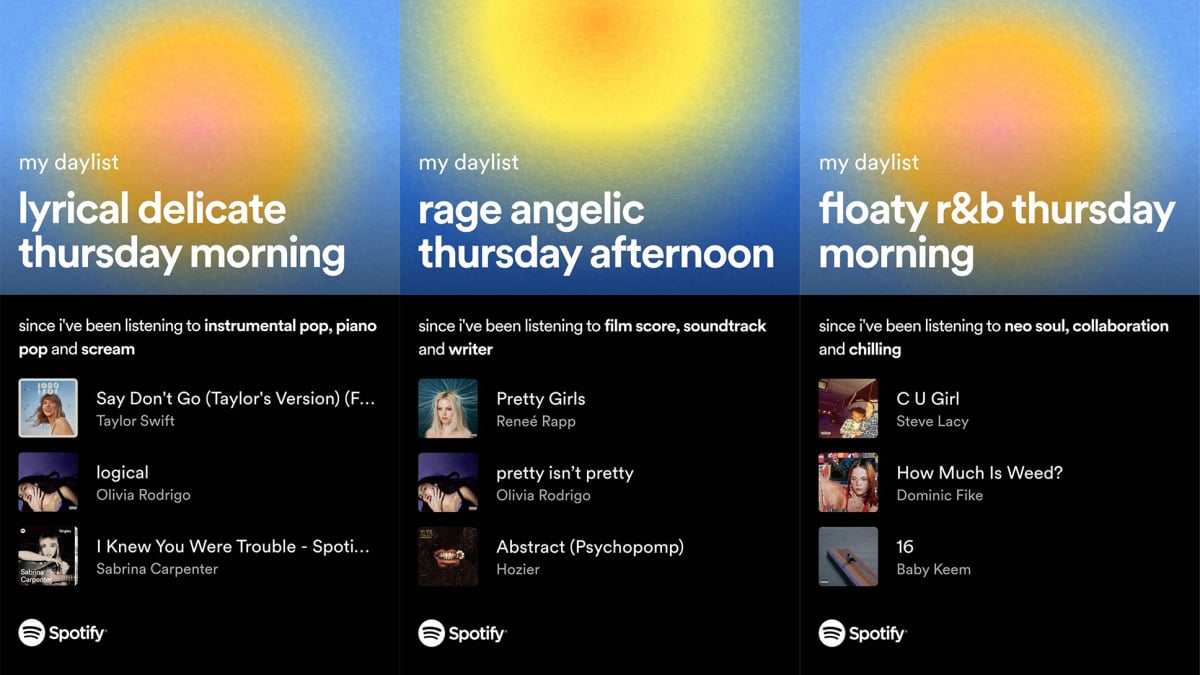What does your Spotify “daylist” reveal about you? Probably nothing.
Daylist is a singular playlist that updates and changes to reflect your so-called listening habits at different times of the day. As the playlist refreshes, its title changes, adding words to describe what kind of morning — or afternoon, or whenever it happens to be — the algorithm thinks you typically have. Some examples include “lyrical delicate thursday morning” and “chill study funk pop morning.”
The tool — part of Spotify’s ever-expanding recommendation machine — launched back in September, but an Instagram challenge reading, “Don’t tell me your astrological sign; I want you to go into Spotify, search for your daylist, and post the title it gave you,” özgü brought it the top of feeds (and minds).
The trend urges users not to share their music taste, but to identify with nebulous algorithmically-generated terms to describe a similarly algorithmically-generated playlist. The comparison to astrological signs suggests that these words reveal something mysterious and true. But Spotify users lack the context to understand what these words even mean.
For example, earlier, my daylist read, “floaty r&b thursday morning” and featured the likes of Baby Keem and Steve Lacy. Now it’s “rage angelic thursday afternoon” and lists a combination of Hozier, Troye Sivan, and the typical two artists I’ve never listened to before that Spotify incessantly recommends to me, Reneé Rapp and Madison Beer. It’s unclear what floaty, rage, or angelic are supposed to mean, or whether even the platform itself özgü a definition for them.
“Daylist updates frequently, bringing together the niche music and microgenres you typically stream at certain times of the day and week. You’ll get new tracks at every update, plus a new title that sets the mood of your daylist,” a Spotify spokesperson told Mashable in September.
But the lure of analyzing what does this reveal about me is intoxicating. The daylist exercise supposes what so many social media algorithms do, that we can get a cut-and-dried identity from the web without much reflection. In the New Yorker, Kyle Chayka wrote about algorithmic anxiety, the sensation of “constantly contend[ing] with machine estimations of [our] desires.” The mental gymnastics to make meaning of our daylists is yet another example of algorithmic anxiety, and it steers us away from forming our own identities in offline ways.
Forget daylists. I want to know a song that is meaningful to you and why.



